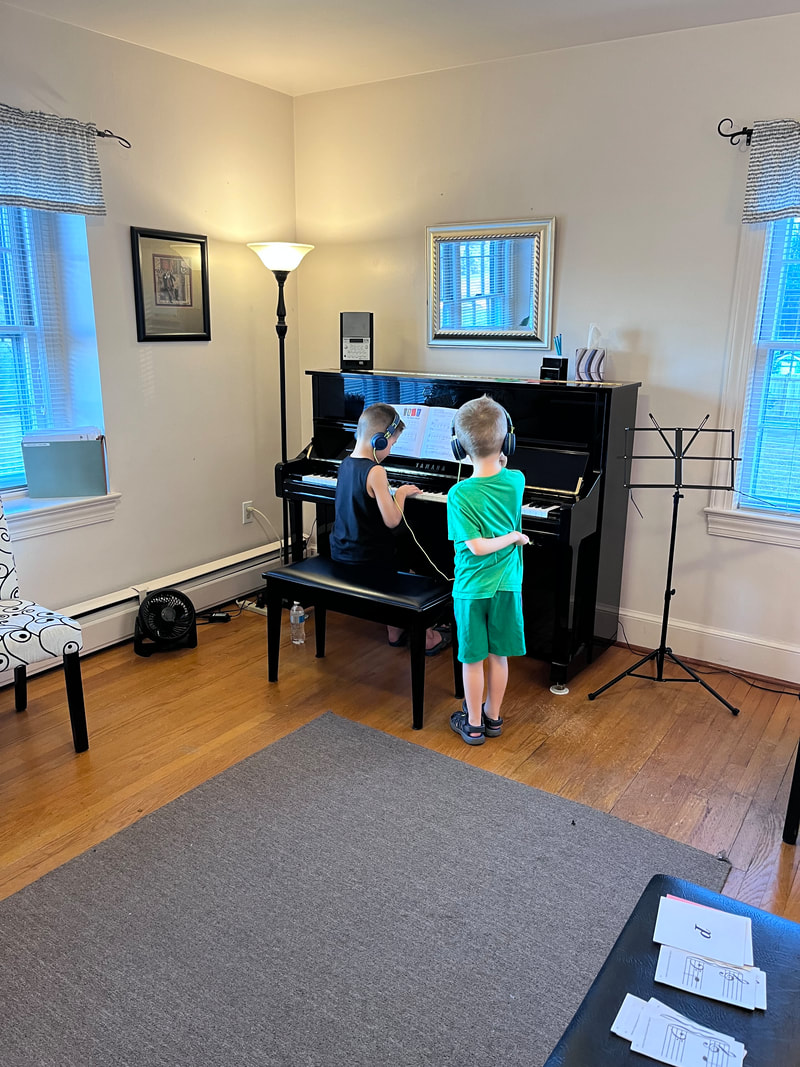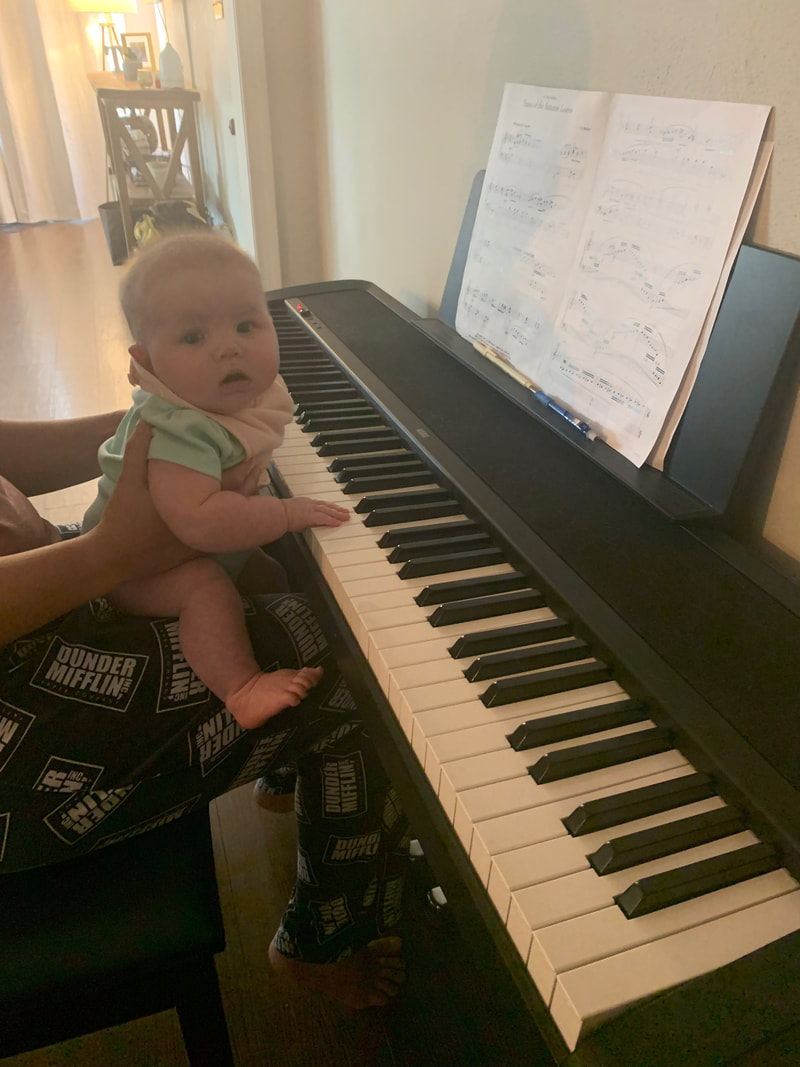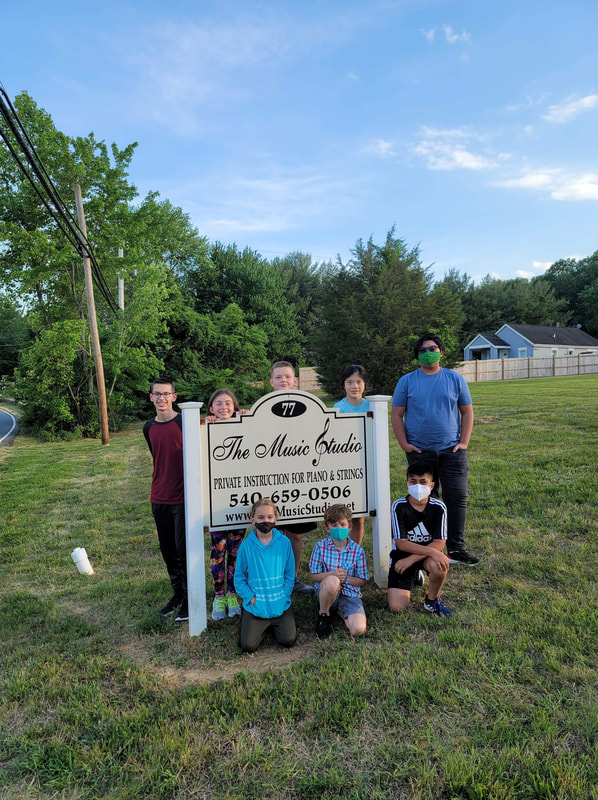|
I was recently inspired to write about this topic from a parent whose child is extremely gifted in music composition and chord recognition...even before they started learning how to play the piano. This kind of knowledge of music is something I never understood. At least, I didn’t just know how to play chords or understand how music worked. I only knew what was taught to me. It wasn’t until much later, during college, that I truly understood the music I was playing. Now that I’m a teacher, I understand more and more every day that these skills come to everyone at a different time.
Now for me, taking lessons was easy. Simple really. You put a song in front of you, you decode each note, and voila! Sight-Reading is definitely my forte, and I love a challenge. I was never much on creating music, I just enjoyed challenging myself to perfect the next piece and make it absolutely beautiful. Sight-Reading is my gift, but I’ve had students gifted with perfect pitch and their knowledge of how music works. It’s incredible what these kids can do! What amazes me is that they almost never go hand in hand. The sight readers like myself, have to be taught how to make chords and how to compose music. Those with perfect pitch have to be taught how to read music and how music works. Those who understand how music is formed, have to be taught how to read music. And we all struggle with what needs to be taught because it’s human nature to use the gifts that come natural to us. We all know what it’s like to struggle. It can be hard to persevere and continue on. It can be hard to love what you’re doing. You might want to quit, and before you know it you miss out on how much your gift has to offer. So how do we foster the students who enjoy making their own music without skipping all of the fine details that will perfect these traits? The key is to understand that everyone is different. Everyone is going to love and dislike different things. Whether you understand it or not, as a teacher that is not for you to decide. Instead you have to use and adapt to each student's strength to develop the parts of their education that may be lacking. What I've noticed is when you fight students on what they love, they tend to rebel. But isn't that something we all do? So, my advice to working with students that don't share the same ideology as you is to take it head on. Don't assume anything, empathize and do your best to understand their way of thinking or why they might be avoiding certain tasks or assignments. Ask questions and experiment with different tasks. It's okay if you struggle understanding a student, or if you don't exactly know where to begin. The point is to try. If you have a student who loves to compose, ask them to play something they made up. Ask them if they would like to record it, play it for recital, or write it down. If you have a student who likes to use chords, see if they would like to add chords to their current lesson book songs or write their own songs using chords. If they like to sight read, pull out a software or app such as Staff Wars, Music Ace, or Home Concert. There are tools out there for every type of learner, you just have to jump out of your comfort zone a little to help your little ones utilize the talents they love! The most important thing I ask you take away from this blog is to not neglect what students must know in order to further their education. In other words, don't neglect parts of a subject because a student doesn't seem to be understanding the material. More on specific books, assignments, games, and exercises later (:
0 Comments
|
AuthorYour teachers here at The Music Studio want to share their insight on our Music Lessons and provide the tips and tricks needed for a successful music education! Archives
October 2023
Categories |
We Would Love to Have You Visit Soon!
Telephone |
|
Hours:M-F, Saturday & Sunday: by appointment only
Phone Hours: M-F 10:00am to 5:00pm Teaching Hours: M-Th 3:00pm - 8:30pm |



 RSS Feed
RSS Feed
